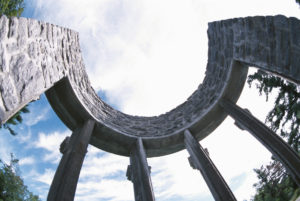
When it comes to the many religions of the world, some have more defined boundaries than others. For example, most people of differing backgrounds have a general idea of what Christians and Muslims believe and the prophets that followers believe in. Other religions, however, become a bit harder to nail down. Modern paganism is one such religion that cannot be defined in a straightforward way. Often referred to as neopaganism, this is a religion that stems from many different places and has roots dating back to the earliest days of civilization.
The term “pagan” is not easy to pin down. Scholars and academics still dispute the origins of the word and whether there was an actual pagan religion. Experts have come to the general consensus that the word “pagan” was most often used to describe non-Christians throughout the Roman Empire and subsequent time periods. This means that there was no specific “pagan” religion out there, just a collection of religions that were not Christian. This beginning is very important to the direction the religion took.
A Movement
Paganism is different from other modern religions because it is less of an organized system of religion and more of a movement. There are different pagan groups located all over the world, though a vast majority of the groups tend to be found in North America and Europe. The pagan groups that exist today have quite different beliefs, but there are many common threads between them. For example, most of these pagan groups share in rituals and practices that originated across the world and predate modern history.
There is a lot of diversity in paganism, but there are also still many problems. In parts of Eastern Europe, certain pagan groups restrict membership based on race. While modern critics believe these exclusionary practices to be inherently racist, pagans in these groups have argued that the religions are closely attached with national origin. This is but one example, and it is important to remember that pagans across the world often welcome newcomers and people of all backgrounds and walks of life.
Reclamation
Due to the way that the word “pagan” was used in a negative context by Christians in the Middle Ages, many modern pagans have set a path toward reclaiming the word. As with many words that have been used in a negative way over the years, these pagans have decided to repurpose the word and use it in a more positive manner. This has created something of a divide among pagans as well. Some believe that the term “neopagan” is too reminiscent of the negative history, while others find it to be progressive and bold.
Paganism is often more of a guide for how one should live his or her life rather than a strict belief in a higher power. Gods, goddesses, spirits, and other deities are present in most pagan belief sets, but the worship of these beings is not often the central focus of the religion. Instead, pagans are usually tied to daily rituals that pepper life with meaning and help to ensure the autonomy of the individual and his or her place in the bigger picture.
An Evolving Belief System
Paganism has been around for quite a long time. Though it has changed in name and meaning over the years, the system of beliefs associated with paganism has existed in some form or another since the earliest days of mankind. As paganism shifts and evolves in the modern era, it is likely to become a bit more defined than it once was. Understanding pagan beliefs can help others to understand the value of this religion and treat it with respect.

